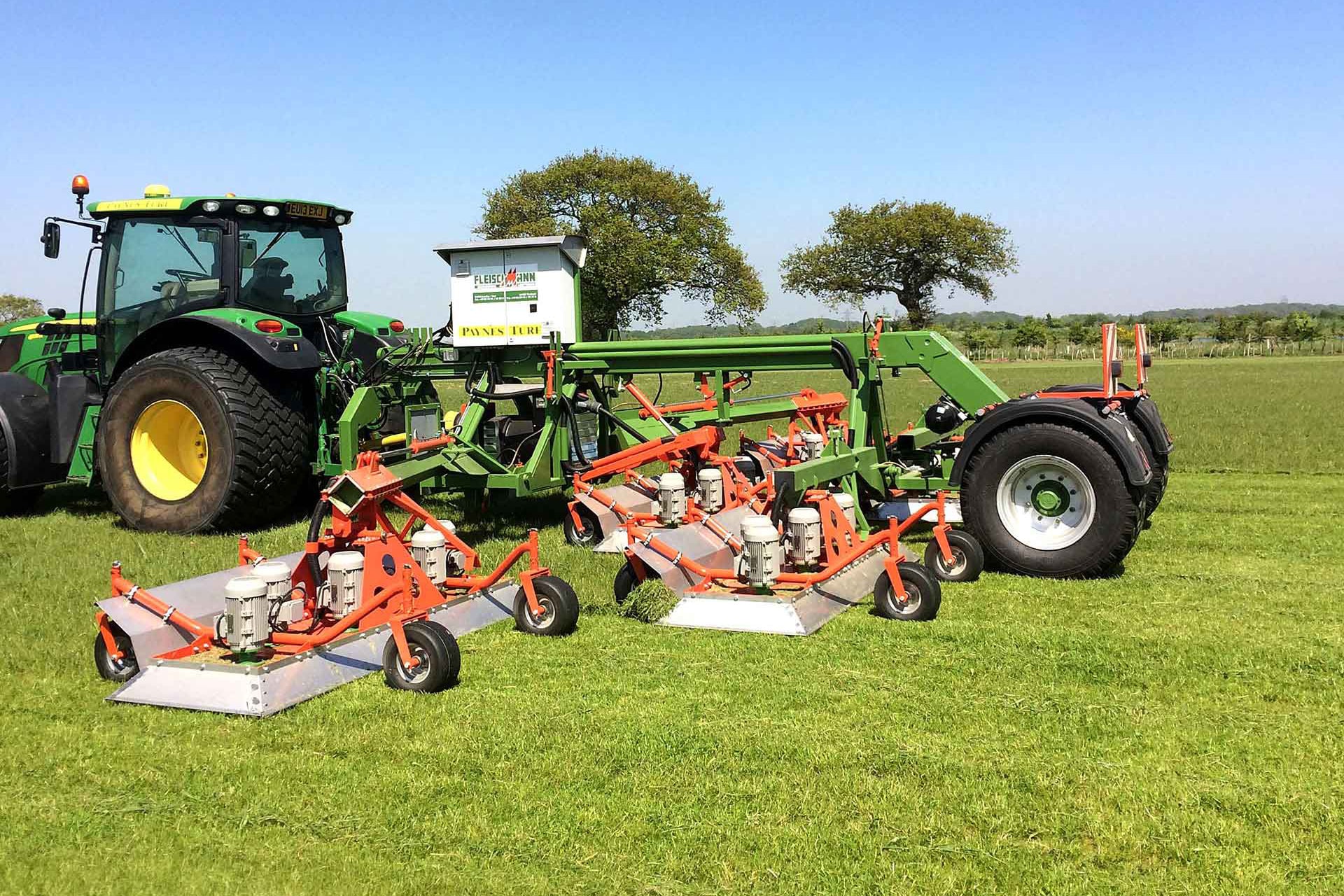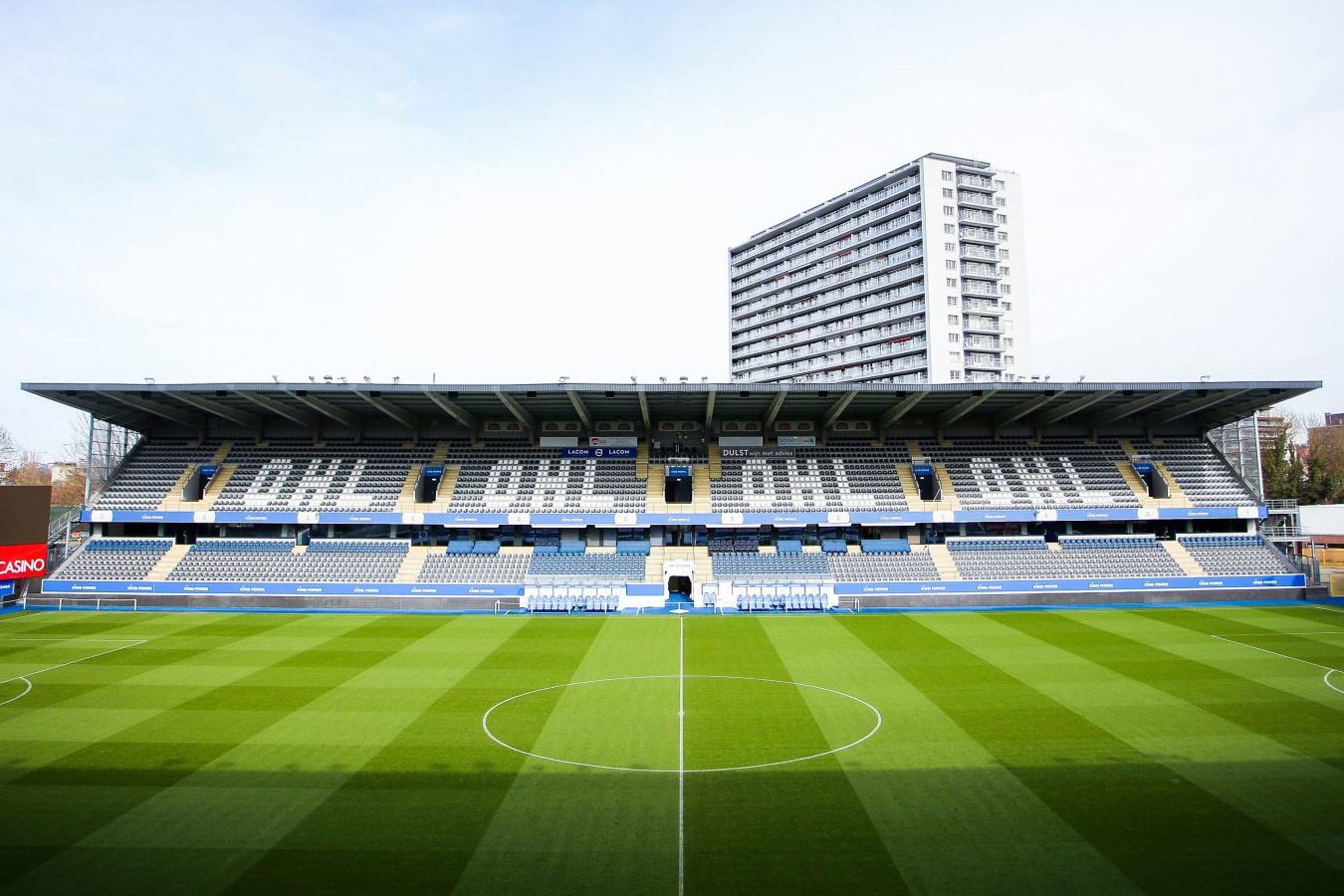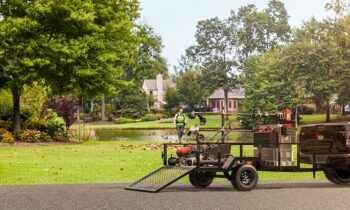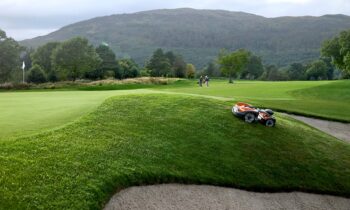
Mouton Group puts even more effort into biomass and wood recycling
In 2000, Kristof Mouton decided to turn his passion for trees and forests into his profession. Twenty years later, Group Mouton has become a reference in forest management and exploitation. With Lansink's Ladder in mind, the right ecological and economic destination is always sought for the wood - from the largest log to the smallest shred -. With the recent purchase of the HG4000 wood chipper from Vermeer, Mouton is showing the way for the coming years: more commitment to biomass and wood recycling.
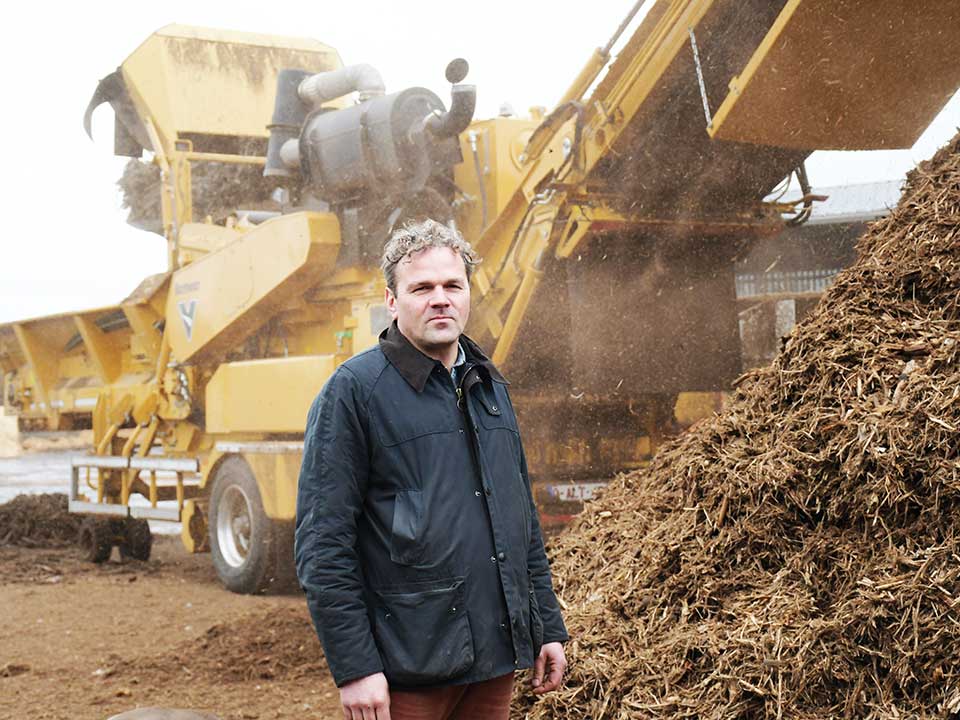
His education in Garden and Design already betrayed his green thumb, but when Kristof Mouton began to develop his professional career, he still chose forestry. "Trees, wood: these are materials that give me inspiration. The entrepreneurial blood I had with me from home." When he started it in 2000, his days were initially filled with simple chores such as pruning. Today, Group Mouton and its 25 or so employees are specialists in all-round forest management, with a radius of action that stretches across Flanders, Brussels and Hainaut, with even branches across the border to France and the Netherlands. Among other things, the company is working on the second phase of the Oosterweel connection, but is also helping to remove twigs anchored to Ghent's Castle of the Counts. "Our aim is always to handle the environment as carefully as possible. Just taking a chainsaw is too short of the mark. If we want to build a valuable future, we must continue to recycle and recover," Mouton summarizes.
Specialized people and machines
"Our strength, on the one hand, lies in the years of experience. When I started, the competitors could be counted on one hand. It has given us the opportunity as a company to build up a machine park step by step, so that we can now perform all the steps in-house. From the mapping of forest, trees and timber, to the follow-up of permits, the execution of all works and the recovery of materials." The common thread here is always to look for the best solution for the materials according to the Ladder of Lansink. Mouton Group therefore also has its own marketing channels.
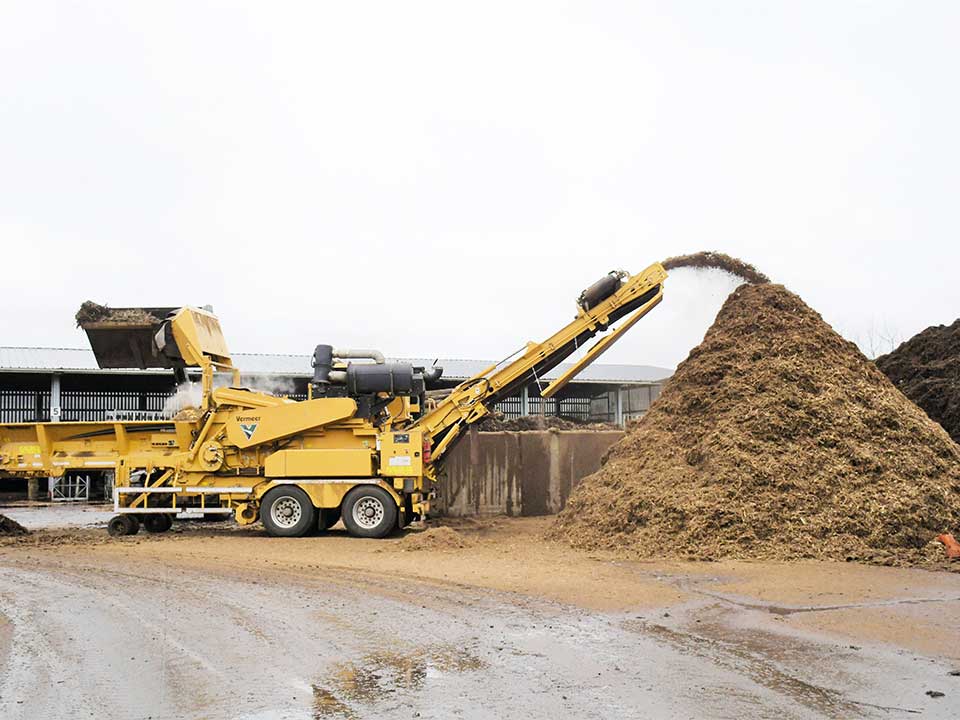
"On the other hand, we are also strong because of that wide variation in what we can handle. We have the capacity and specialized know-how of people and machines to handle large projects in a short time. Because we also have the right machines for specific works. Two people in our workshop are permanently in charge of maintenance and repairs, and of how to adapt standard equipment even better to our needs."
HG4000 mobility and flexibility trump
The latest newcomer within this is Vermeer's HG4000. An investment for the future, as Mouton wants to continue to grow and sees opportunities in expanding its activities around biomass processing and A and B wood recycling.
"Vermeer was actually one of our first suppliers. In the past few years, there was a trend to make every block of wood custom-made. Then we were forced to look across the border for machines specifically tailored to a particular flow. Often expensive investments. Today, that trend has reversed again and we can look to Vermeer's machines, which are affordable with an excellent cost per ton and with great confidence in service."
Mouton hesitated for a long time between the HG4000 and the HG6000. "A heavier, larger machine, it ended up being a bit less suited to our operations. However, the mobility and flexibility offered by the HG4000 are very strong assets. It doesn't even have to go on the road as exceptional transport."
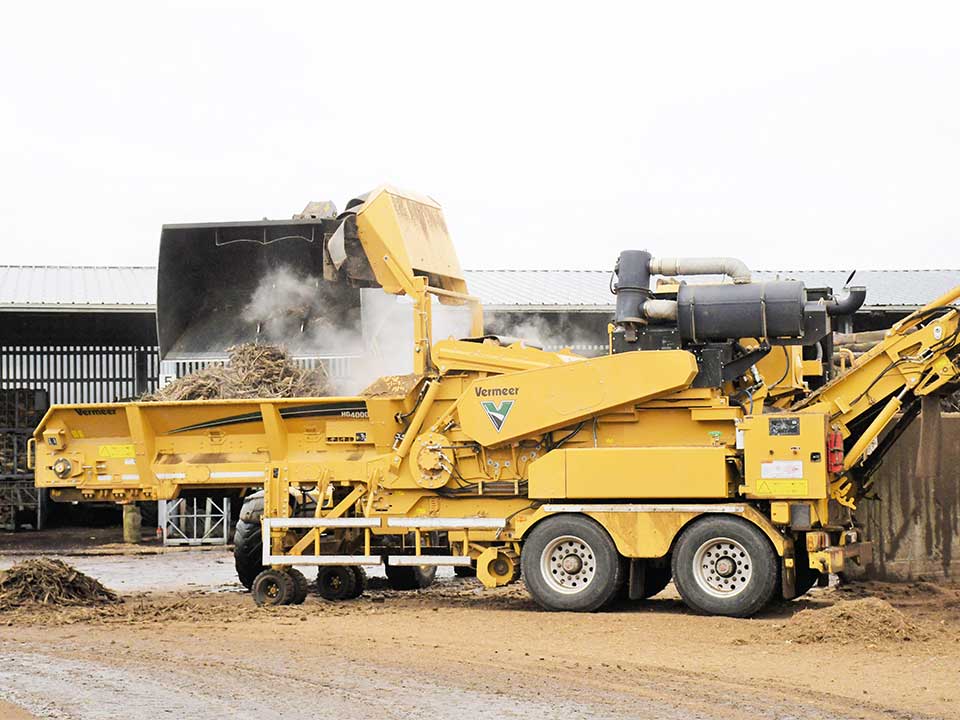
Reliable operation assured
These are not the only strengths. "The immediate availability of the machine played an important role in our decision, as we quickly needed additional capacity. Technically, the feed capacity and the accessibility of the screening surface were especially decisive. We were already familiar with Vermeer's technology and they have clearly not been idle in recent years. A lot of specifications have been improved. For example, the hammers were given additional reinforcement and the rotor is better shielded. Things that are important for continuous, reliable operation. That's why we also chose the Metal Defense System as an option. The machine has only been running for a week, but the system has already prevented certain metal pieces from penetrating the rotor. A lot of interfering elements are taken out before they can do any damage."
The machine will run largely at the Lochristi site. "But also in our second plant, in Bernissart, which we are now starting up. We want to work locally, with local people. The new location also opens up opportunities to further work the north of France."
